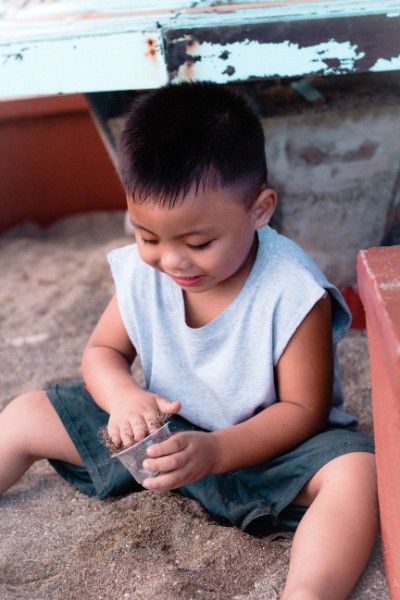Mathematics plays a critical role in early childhood development as it helps children develop problem-solving skills, logical thinking, and spatial awareness. Through number recognition activities for toddlers and babies, children learn to count, recognize shapes, and understand basic mathematical concepts such as addition and subtraction. Early exposure to mathematics also prepares children for success in later academic and life pursuits, such as science, technology, engineering, and mathematics (STEM) fields. Additionally, teaching maths to young children helps them build confidence in their abilities and sets a foundation for a lifetime of learning.

Number recognition is an important skill for toddlers to develop as they begin to explore and enjoy the world of counting and numbers. Not only does it lay the foundation for more complicated counting skills, but it also helps children understand the world around them.
Here are five number recognition activities for toddlers that you can try at home with your little one.
1. Counting Songs
Counting songs for number recognition are a fun and interactive way for toddlers to learn numbers. You can find a variety of counting songs online, or even make up your own! Singing along to a song can help your child remember the sequence of numbers.
Singing number songs with young children is an excellent way to promote their mathematical thinking skills. By learning and singing songs that involve numbers, children can develop a strong foundation in numeracy while having fun and engaging in a creative activity. Number songs can help children learn to count, recognise numbers, and understand basic mathematical concepts such as addition and subtraction. Additionally, singing encourages language development and improves memory retention, making it an effective way to reinforce and consolidate mathematical concepts. Engaging in musical activities can also promote creativity, self-expression, and socialisation. Overall, singing number songs with young children can foster a love for mathematics and help them develop important mathematical skills that will benefit them throughout their lives.
2. Counting Steps and Jumps
Everyday physical activities can provide excellent opportunities for young children to develop their mathematical thinking skills. Counting steps when walking down the stairs, for example, is an excellent number recognition activity for toddlers, as theylearn to count and develop a sense of number. Similarly, counting objects during everyday activities such as setting the table, putting toys away, or picking up sticks in the park can help children develop their counting skills and understanding of basic mathematical concepts. By integrating mathematical thinking into everyday activities, children can develop a strong foundation in numeracy and problem-solving skills.
3. Cooking Sessions
Cooking activities are not only a fun and engaging way for young children to learn about food and nutrition, but they also provide numerous opportunities for developing mathematical thinking. Measuring ingredients, following recipes, and counting portions all involve mathematical concepts such as fractions, ratios, and measurement. Through cooking, children can also learn about different shapes, sizes, and patterns as they cut fruits and vegetables or arrange toppings on a pizza. Additionally, cooking can promote critical thinking skills as children problem-solve and make decisions about which ingredients to use and how much to add. Engaging in cooking activities can help children develop important maths skills while also fostering independence, creativity, and a love for healthy food.
4. Water and Sand Play
Water and sand play are not only fun activities for young children, but they also offer numerous opportunities to develop mathematical thinking. When playing with water, children can learn about measurement and volume as they pour and fill containers of different sizes. They can also explore concepts like floating and sinking, and understand basic physics principles. Similarly, playing with sand can help children understand geometry and spatial relationships as they create shapes and structures using different tools. They can also practise counting, sorting, and measuring by using scoops, buckets, and measuring cups. Engaging in water and sand play can foster creativity and curiosity in children, while also promoting important mathematical skills that will benefit them throughout their lives. Use bathtime with jugs and containers as a great opportunity to develop this, or if possible a trip to the beach can provide countless ways of learning mathematical concepts.
To allow your child to embrace learning in an outdoor environment, they can practice counting with conkers.
5. Shape Sorting and Hunt
Use different coloured shapes and have your toddler sort them by colour and shape, while counting how many of each shape they have. You can hide shapes in the garden or around their room and get them to count them as they find them. You could use stones, sticks or leaves as part of this game.
Shape sorting is a great number recognition activity for toddlers, helping them to s develop their mathematical skills. Sorting shapes by colour and shape helps children understand basic concepts of categorisation and classification, which are fundamental to mathematical thinking. Counting the number of each shape they have also helps toddlers develop their counting skills, and reinforces the idea that numbers represent quantities.
As they sort the shapes, toddlers are also developing their fine motor skills by picking up and manipulating the shapes. They are also learning to identify and recognise different shapes, which is an important precursor to geometry.
Learning Through Creativity and Fun at All About Children
At All About Children, we encourage development through enjoyment and fun. If you’d like to find out more about our nursery environment, please book a tour or contact us.
